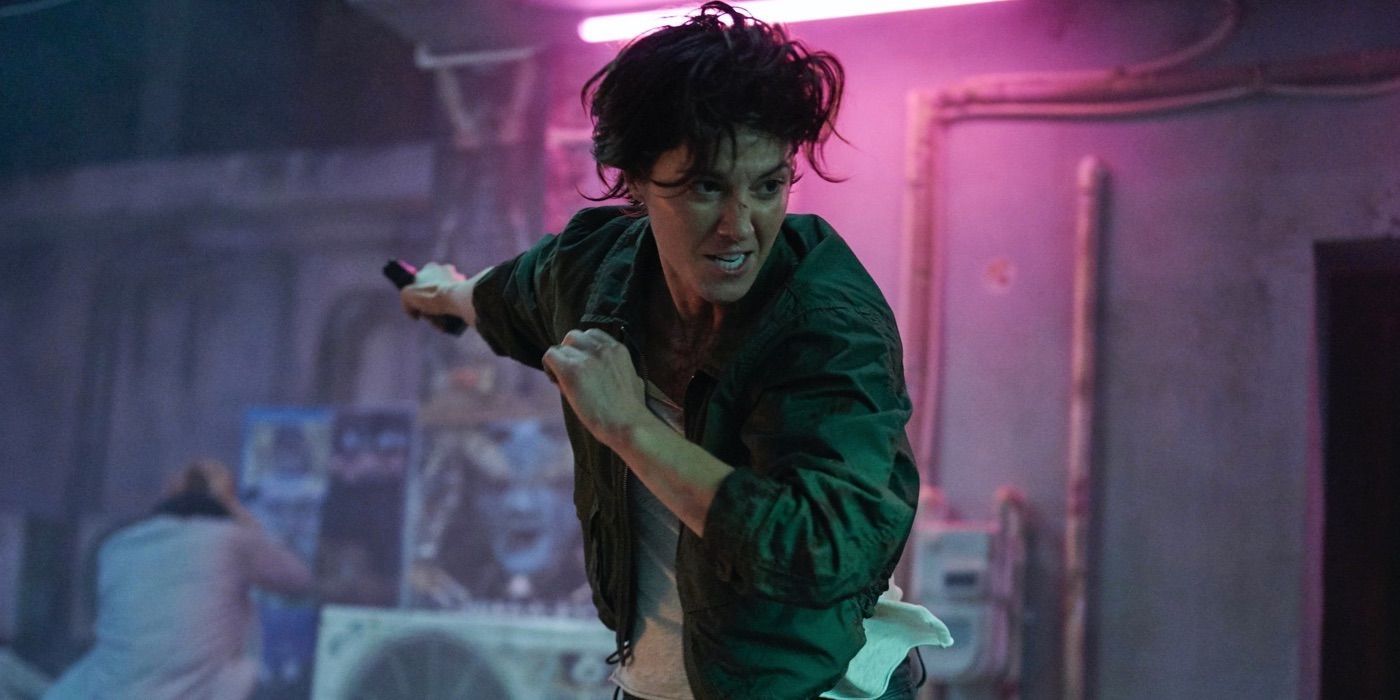WARNING: The following contains spoilers for Kate, now streaming on Netflix.
Netflix's Kate is an action/thriller that recycles all too many professional killer movie clichés, be it making the titular character's handler a mentor/father figure who raised her from a young age or granting Kate the ability to give herself an impromptu yet snazzy haircut. For the most part, these elements come with the territory, allowing films like Kate and similar women assassin movies (see this year's Gunpowder Milkshake and The Protégé) to blend pulpy thrills with sincere drama. Less forgivable, however, is the movie's use of the same problematic trope as Netflix's 2020 hit Extraction.
Story-wise, Kate and Extraction both center on protagonists with checkered pasts -- a black ops mercenary, in the latter case -- who get a shot at redeeming themselves for their previous actions by protecting a kid from violent people who want to kidnap and/or kill them. More to the point, they're also films about a white anti-hero who travels to and ends up killing a lot of citizens in an Asian country, all in the name of defending a younger Asian, or, in Kate's case, biracial character. And while they're far from the first movies to use this general premise, that doesn't make it any less regressive than it always was.
In their defense, neither Kate nor Extraction present their lead character's killing sprees as being unquestionably "good," even when they're using their skills to slay other assassins and violent criminals. Far from it, the films are all about their protagonists evolving from being motivated by revenge and money, respectively, to becoming more selfless and determined to save their young companions from a life of pain and suffering like the one they've known. At the same time, that doesn't excuse the way these thrillers exploit non-white characters' deaths and trauma in service of a narrative about a white person.
This is further reflected in the way the movies utilize their settings. Extraction is particularly guilty in this respect, employing yellow-tinted cinematography to portray Dhaka, Bangladesh, as a hostile and at times hellish place where danger awaits the film's heroes around every corner. Kate is relatively better in this regard, yet similarly envisions Osaka, Japan at night as little more than a stylish collection of alleyways and buildings that offer a convenient backdrop for shoot-outs and brutal hand-to-hand combat. For as much as the movie calls attention to Osaka's native culture and people, it doesn't actually examine them with any real depth or use them to frame its plot in a meaningful way.
Instead, Kate tries to compensate for this by developing Ani, the teenager who Kate winds up guarding and, as fate would have it, the young woman whose father she murders in the film's prologue. And to its credit, Ani often feels like a real person, whether she's cursing out Kate for acting like a literal killing machine while also thinking she's kind of cool or wrestling with her frustration and despair about how little her family seems to care for her. But again, her role in the story is to serve as a catalyst for Kate's arc, and the movie only cares about Ani's anger and distress inasmuch as it fulfills that purpose.
At the end of the day, Kate and Extraction are adrenaline-fueled genre movies that explore how people become trapped in cycles of violence and how they can break those cycles. Problem is, they continue the longstanding practice of films that revolve around the struggles of white leads while exploiting the hardships of non-white characters without fully investing in them. These movies might be more inclusive than past action/thrillers that featured all or nearly all-white casts but, their intentions aside, that doesn't make their approach feel any less backward or poorly considered.
To see how Netflix's newest action movie uses Extraction's problematic trope, Kate is now streaming.



